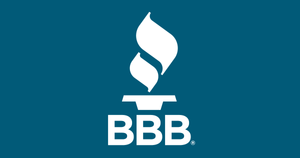Reno, NV – Consider this scenario described by a Venmo user: Six calls in the space of 50 minutes, none of which you answer. The voicemail you get seems confusing “. . . you’ve requested this account. If it was not you, press 1.” Then you get a text from Venmo with a code, then another call asking for the code. Be careful! It’s a scammer pretending to be Venmo to get into your account.
Using Venmo or other social payment services to pay family, friends and even businesses has become the norm. It is a quick way to pay for your part of dinner or that sprinkler repair that was just completed.
There seems to be no shortage of scammers trying to steal your money. This latest scammer attack is persistent and wants that code (which is legitimately sent from Venmo because they think you are trying to access your account), so they can get into your Venmo account and take all your money.
BBB advises consumers to take time to investigate:
- Do not reply to texts, calls or voicemails from people/phone numbers you don’t know.
- Use the help/support section of the money transfer app to ask if the payment service was contacting you.
- Change your password if you believe a scammer has contacted you.
Protect yourself when paying with a money transfer app by following this advice:
- Use money transfer only with people you know. Protect yourself from scams by only using money transfer apps for their intended purpose — sending money to people you personally know or businesses that have performed services.
- Confirm that the @name and picture of the person you are sending the money to is correct. Phone numbers can and should also be used as verification.
- Enable additional security settings. Turn on additional security measures, such as multi-factor authentication, requiring a PIN, or using fingerprint or facial recognition like Touch ID and Face ID.
- Link the money transfer app to a credit card. As with many other purchases, using a credit card provides additional security if you don’t receive the goods or services paid for. Linking to a debit card or directly to a bank account does not provide added protection. Unauthorized access might drain that account, or with overdraft protections, even drain multiple accounts.
- Use a strong password or 2FA on your phone. In the unfortunate event that your cell phone is lost or stolen, be sure criminals can’t access your payment apps. Secure your phone by choosing a strong password, biometric security devices or two-factor authentication security available on many smartphones.
Don’t keep a large amount of money in your money transfer app account. It is not a bank or credit union, so there are very few protections. Transfer money out as soon as possible, so it can be secured in a financial institution.
Money transfer apps are used successfully by millions of people each year. But, you should take precautions so that you are not the next victim.
For more information
If you spot a scam, report it to BBB.org/ScamTracker to help others avoid falling victim to similar tactics.










Comments are closed